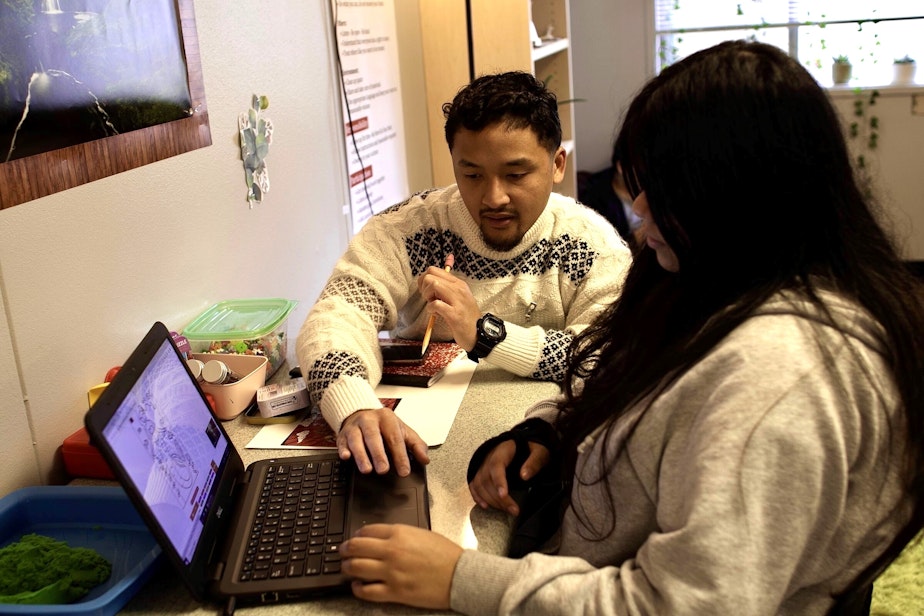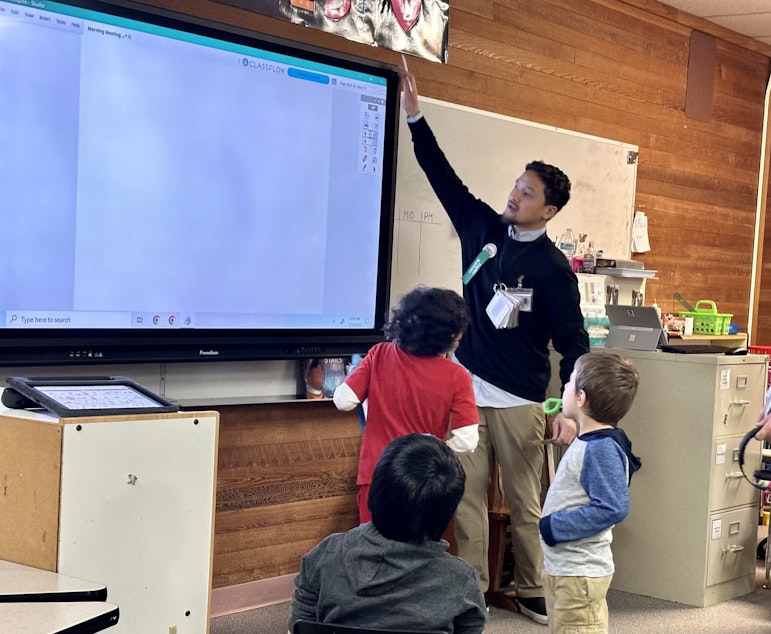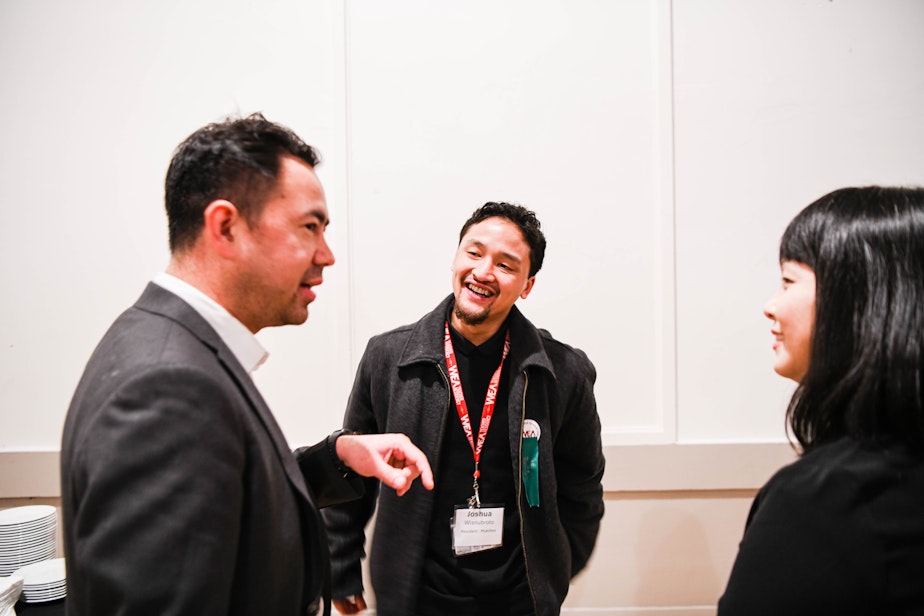As WA schools lose more special education teachers, help comes from within

T
he school day is off to a musical start in a classroom at Picnic Point Elementary in Mukilteo as Joshua Wisnubroto leads his class in a rousing rendition of "The Space Song."
"Mercury, Venus, Earth, and Mars," Wisnubroto sings with his students. "Jupiter, Saturn — wow they're big!"
The class includes six kindergartners and first-graders with autism. Wisnubroto said he loves working with them all.
Another teacher is in the room to help mentor him.
Wisnubroto is one of 16 future educators participating in a new teacher training program created by the Washington Education Association. It's a fast-track to the education profession, instead of the traditional four-year degree.
This one-year program allows people with any bachelor’s degree to become a special education teacher.
The main focus is to get new teachers like Wisnubroto hands-on experience. Throughout the year, participants teach and learn from veteran educators in four different school settings.
"It's one thing to learn from books, right? But it's another thing to learn and have on-the-job experience right away, on the spot," Wisnubroto said. "I don't take that for granted at all."
And unlike typical student teaching experiences, which are often unpaid, these residents get a minimum salary of $35,000, plus benefits.
RELATED: Union-led residency program aims to combat WA teacher shortage

Across the country, just over half of public schools reported feeling understaffed entering the 2022-23 school year, according to data from the U.S. Department of Education.
Those schools said the most difficult teaching positions to fill are those in special education. Burnout is common, and the teacher pipeline can't keep up.
Fed up with these persistent shortages, some colleges have created grow-your-own teacher residencies similar to this program.
But the one here in Washington is believed to be the first of its kind created by a teachers union. The educators behind it say they’ve seen how the shortages can hurt their students.
Kimber Wilkerson saw this firsthand when she taught special education in Seattle.
"You might not be able to spend as much time with an individual student or just spending the time sort of observing them in their classrooms to make sure that your interventions are going well," she said.
RELATED: WA teacher turnover hits new high as students struggle to recover from pandemic disruptions
Wilkerson is now a professor at the University of Wisconsin who trains special education teachers and runs a similar kind of teacher residency program there.
She said this workforce shortage has always been a problem, going all the way back to when special education became its own program in the 1970s, after federal laws mandated public education for all children with disabilities.
Although it's an incredibly rewarding job, Wilkerson said much of the problem is burnout — especially when teachers have to cover for vacancies.
"I think a lot of special educators really enjoy getting to focus on individual students and really make a difference for them, and get to know their families and get to know the kids' strengths," she said. "And the more spread thin you are, you sort of lose that part of the job."
That's why Wilkerson said homegrown teacher residency programs like this one are key to bolstering the special educator workforce.
Not only do they provide hands-on training by and for teachers, but Wilkerson said they can also diversify the kinds of people who are able to pursue a teaching career, especially for those later in life.
"If you've already been working and supporting yourself and maybe contributing to the support of a family, it is hard to go back to school full-time," she said.

For his part, Wisnubroto has been working as a paraeducator and substitute teacher in the Mukilteo School District since graduating with a degree in early childhood and family studies from the University of Washington in 2017.
He’s always wanted to move up to being a certified teacher, but it was tough to find the money or the time for a traditional master's program.
Wisnubroto feels fortunate he doesn't have to do that, and he gets to remain in the district he attended from third grade — when his family emigrated to the U.S. from Indonesia — through high school graduation.
"I would struggle, but I'm sure I'll figure a way out," Wisnubroto said when asked whether he could afford to take a year off. "But I'm very lucky...there are not a lot of programs like this."
Now, Wisnubroto can say he's worked in three different schools and settings, including ACES High School, an alternative high school with a smaller, more personalized learning environment, the K-1 autism room at Picnic Point Elementary, and Mariner High. There, he currently co-teaches inclusive English classes and works with students with disabilities in a resource room next door.
Geri Summers, Wisnubroto's mentor teacher at Mariner and one of the educators who helped design the program, said the hope is not just to keep teachers in the profession, but to keep them in local public schools. Residents like Wisnubroto have committed to teaching at least three years in the district where they do their residency. So, their mentors won't be far away, even after the residency is over.
"Hopefully this program can really just reinvent our way of looking at how do we prepare our teachers, so that when they start on day one, they're ready," Summers said.
After helping more teachers through the door, Summers is warming up to the idea of retirement.
"To see Josh and this cohort come in with such passion and such love for kids, especially our kids who learn very differently and understand that, it just fills my bucket," she said. "Because I know when I retire, I am leaving this to special ed teachers who want to be here, who are ready to be here, and just love, love, love kids."
Next year, the training program will expand to six more Washington school districts. Applications for next year's residency are open through April 12.




